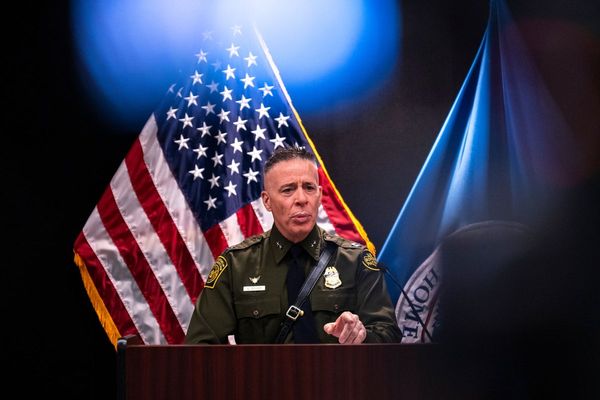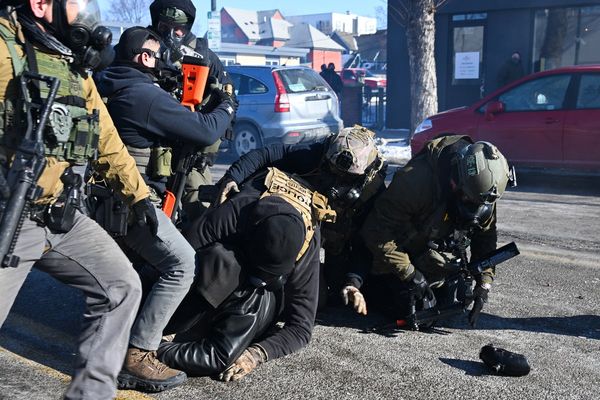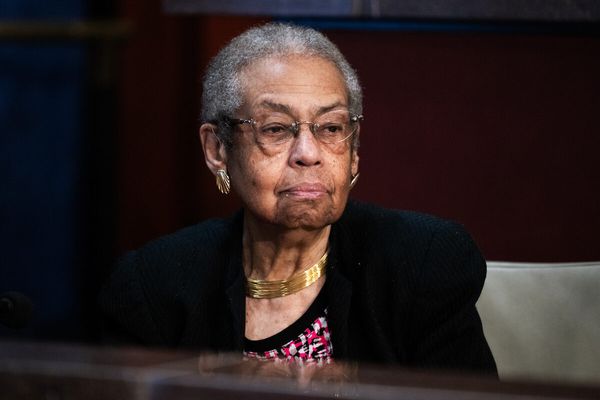Given Vladimir Putin’s track record, it is still difficult to be optimistic about the Ukraine peace process, much as anyone with a grain of humanity would wish to be. After the recent dazzling flurry of diplomatic activity, the initiative has returned to Moscow. Putin has the future of this process in his hands but seems to be in no hurry to take it forward.
More worryingly, he has hardly changed his demands in many months, and he has form, which is not encouraging. During his time running the Russian Federation in various capacities, he has flagrantly broken every previous guarantee of Ukrainian sovereignty including the Budapest Memorandum (1994), the Treaty of Friendship (1997), and a 2003 border treaty.
For a decade after that, Putin gradually escalated secessionist activity in the eastern Donbas and Crimea, before annexing them. Even days before the February 2022 invasion, he was denying any such intention. Since then, Putin has taken every opportunity to declaim that Ukraine isn’t a real country and merely a province of Russia, which is at least his honest view.
It is also one that he will not abandon simply because he has signed some piece of paper. Putin’s word counts for nothing, a fact that Donald Trump seems unable to accept. Mr Trump deals in personalities but against Putin it is, as we’ve seen, an unequal match.
Still, there are at least some hopeful signs that have emerged from the summits in Alaska and in Washington. The most significant is the suggestion, albeit tentative and seemingly limited, that the United States would be prepared to offer Ukraine some form of “security guarantee” for its future borders. Mr Trump seems strangely susceptible to persuasion, particularly when it is slathered in flattery, and his more isolationist colleagues in the administration would seem to have made him temper his willingness to commit US forces to the region.
There will be no US forces on the ground, says President Trump, which doesn’t come as much of a surprise, and the most that might be expected from Washington seems to be “air cover”, which is more than has ever been offered before. Mr Trump ruled out Nato forces, but volunteered that he’d be prepared to support the British, French and, most sensitively for historical reasons, German troops.
The vague promise of a Nato Article 5-style guarantee remains, with no form of words, and not necessarily as comprehensive as the Atlantic alliance’s “all for one and one for all”. But, again, it is a shift from the doctrine of pure isolationism adumbrated in the US president’s inauguration address last January. Nato membership for Ukraine is ruled out, but Volodymyr Zelensky gave that ambition up some time ago.
Diplomatically, Mr Zelensky is also shrewd to accept the offer of bilateral talks with Putin, or trilateral talks involving Mr Trump, or both options. The Ukrainian leader has repaired his relations with Mr Trump, and assembled an impressive posse of European leaders to advise and to back him. The “coalition of the willing”, led jointly by Sir Keir Starmer and Emmanuel Macron, is a potentially powerful force with which Ukraine can build an even more formidable military capability.
So we know where the Ukrainian president stands – a respectful interlocutor to Mr Trump and a willing negotiator, albeit reserving his position on territorial adjustments. With some skill, he has managed to land Putin with the task of taking up the offer of talks and negotiations. The Kremlin has long been reluctant to grant Mr Zelensky his proper status and claims that he is illegitimate because there have been no fresh presidential elections, something rendered impossible by Russian occupation and bombardment. But, if Putin wants to keep Mr Trump on side, or string him along some more, he must agree to the talks – and quickly.
That leaves the most difficult issue of all for both sides – territory. Mr Zelensky and his brave nation should feel proud that the total subjugation of their country has been avoided, and seems out of the question in the short to medium term. The 2022 “special military operation”, complete with a tank column heading down the road to Kyiv, was designed quickly to absorb Ukraine, and send Mr Zelensky into exile.
At worst, Ukraine will have to give up some land, and, tragically, millions of its citizens, that it has little chance of regaining – or at least not until the Russian economy and its war machine collapse. But it should not have to cede any more than that – and certainly not without some meaty security guarantees, tantamount to those that would flow from Nato membership.
This is the trap Mr Zelensky and his allies have set for the Kremlin – for Putin cannot accept external troops and security guarantees that would make some subsequent attack impossible.
If they deter Russia, they are unacceptable to Russia, and Putin would have to reject the offer of the whole of Donbas and Crimea. Mr Trump has already accepted that possibility. That would displease the Americans and encourage them and the coalition of the willing to back Ukraine until such time that the Russian economy finally breaks. That, however, is quite an optimistic scenario.
First ladies are leading the way in writing wrongs
Britain’s shameful inaction on Jimmy Lai could cost him his life
With the Putin-Trump plan, Ukraine has a choice – of sorts
What does Europe’s ‘Z-Team’ hope to get from its Trump showdown?
After an inconclusive summit, Ukraine’s fate hangs in the balance
Zelensky returns to Washington, this time with Europe at his side







